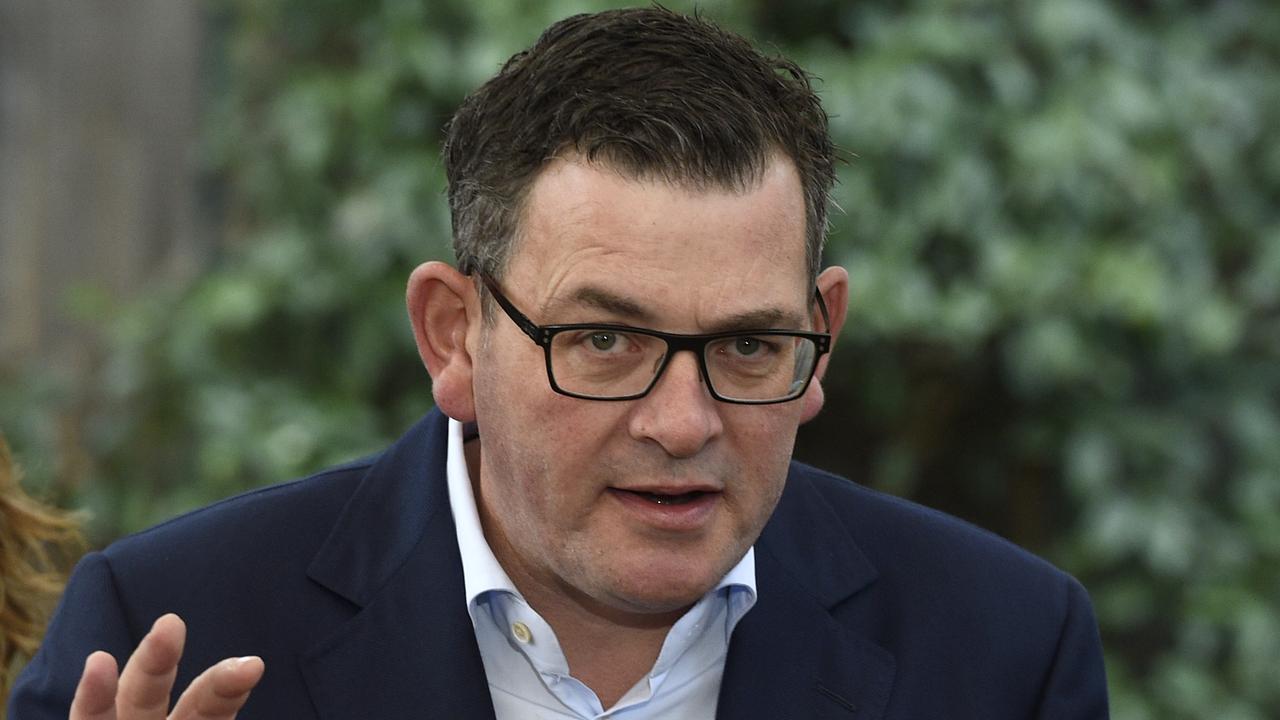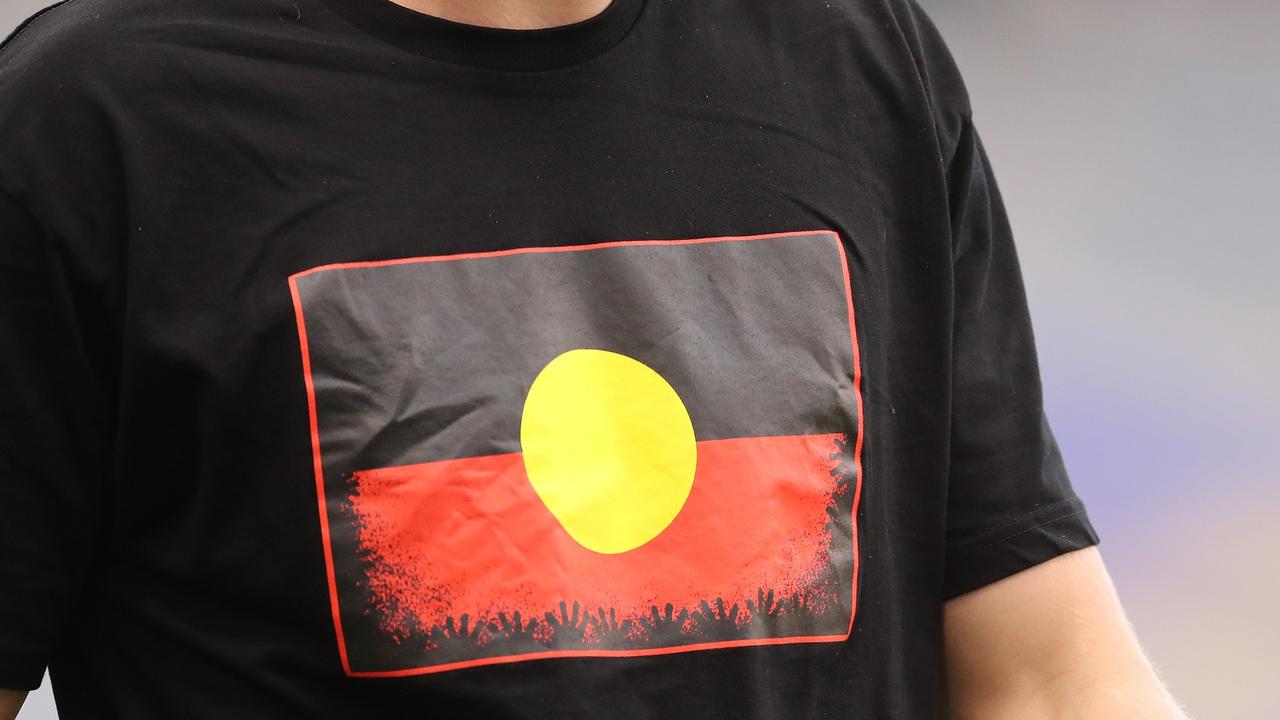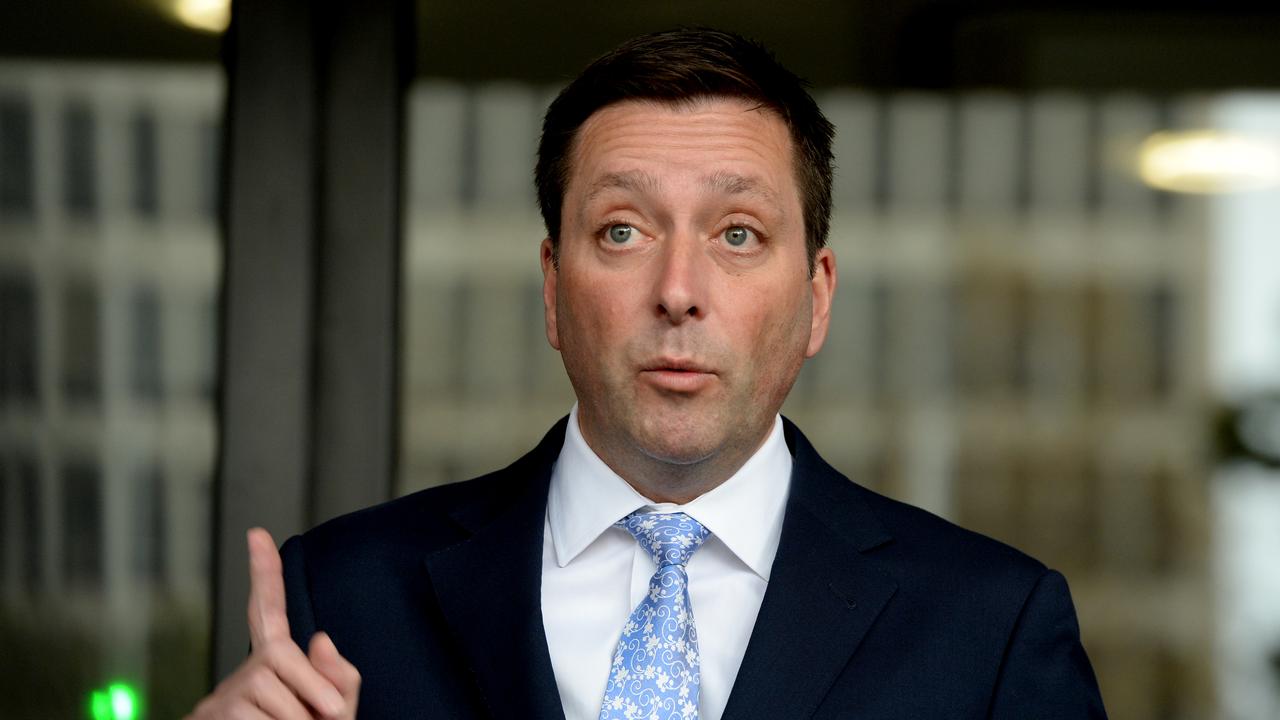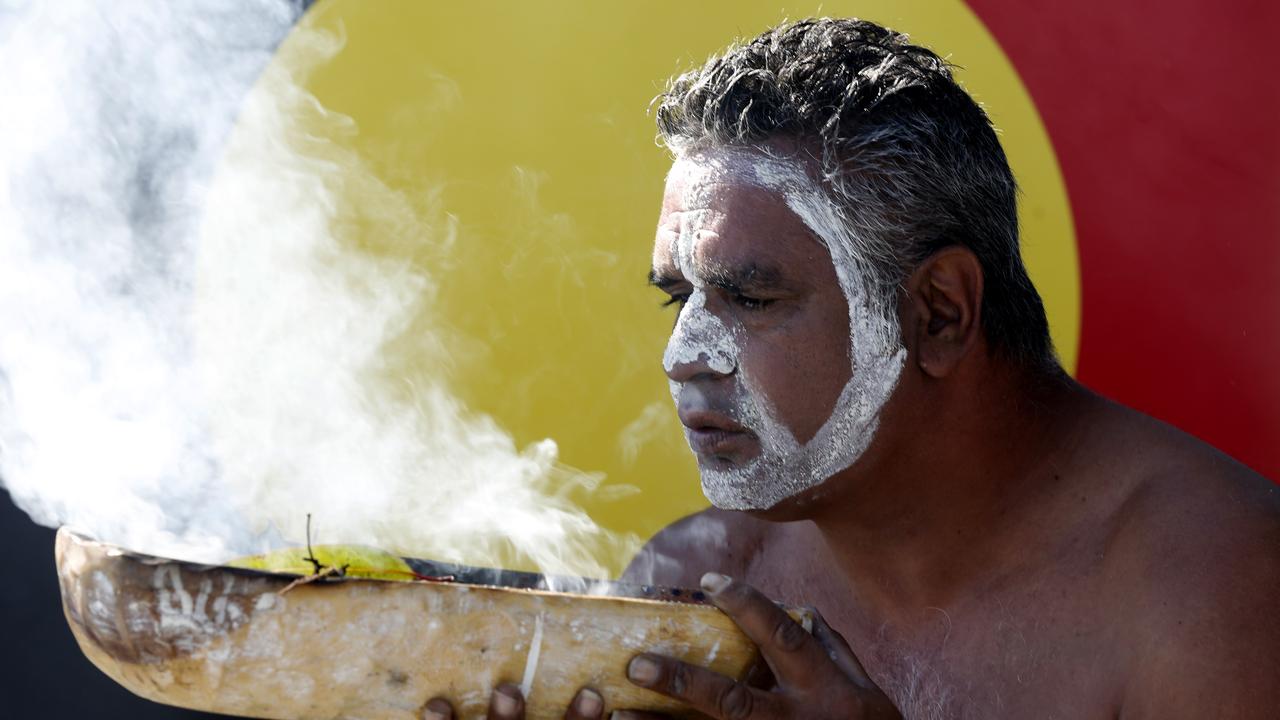Victorian schools encouraged to recognise the ‘significant trauma’ of colonisation
Daniel Andrews says he supports teaching students about the “trauma” of colonisation but opposition leader Matthew Guy says it must be done in a way that isn’t divisive.
Daniel Andrews says it his expectation that every Victorian student will take part in reconciliation initiatives, but opposition leader Matthew Guy has warned such measures must not divide children.
As revealed by the Herald Sun on Tuesday, schools will be strongly encouraged to mark Sorry Day, recognise the “significant trauma” of colonisation, hold welcome to country celebrations and fly the Aboriginal flag, under new state laws.
The Premier on Tuesday defended the program as being important in strengthening ties going forward.
Mr Andrews also said it was his understanding that initiatives like Sorry Day would be encouraged and offered to children of all year levels.

“I think it might be the whole school and I don’t see anything wrong with that,” he said.
“Frankly, as a nation and as a community we need to acknowledge the past and we need to, with a sense of optimism and confidence, but also truth, define our future together.
“Being reconciled is just that. You can’t be reconciled if you’re not prepared to acknowledge some pretty awful stuff that happened in the past.
“It’s about making sure that everybody feels equal, everybody feels included and everybody feels safe.

“Why wouldn’t you celebrate where you, where it’s appropriate, the oldest continuous culture known to history, a culture that has given us so much.”
But Mr Guy, who agreed it was important for students to learn about the past, said it must be done in a way that isn’t divisive.
“I hope and I want this discussion with kids to be one that is done on a respectful basis so that ... we’re not trying to demonise children or make children feel bad about themselves given the mental health challenges that kids have today as it is,” he said.

“It is important that they do learn lessons of fact from the past, but that is done respectfully.
“When it involves kids, we’ve got to make sure that we’re not pitting one against the other.
“It’s not about entirely focusing on the past, it’s about where we’re all going together as a modern, democratic and multicultural nation. We should be proud of that and we should be pushing that to our children more than anything else.
“It’s not about sowing seeds of division and distaste with one Australian and the other, it’s got to be about bringing people together.
“This government has an obvious history of division, and I would hope that on this topic, of all topics, this is not one they would fester even further.”
Education Minister James Merlino said he was confident every school would take up the initiatives.
“Whether it’s disability inclusion or cultural inclusion, every child needs to feel safe and happy and understood in their school community,” he said.
“I make no apologies for this.”
Mr Andrews said he wasn’t aware of any pushback from schools to implement the frameworks.
Asked if the Australian flag unites or divides the community, Mr Andrews said: “It’s not high on my list. I’m not focused on that.”
‘Significant trauma’ to be recognised
Schools will be strongly encouraged to mark Sorry Day, recognise the “significant trauma” of colonisation, hold welcome to country celebrations and fly the Aboriginal flag, under new state laws.
Even schools, kinders, universities and state-run childcare centres without Indigenous students must become culturally inclusive or risk running afoul of new child safe standards.
From next term all Victorian educational settings must provide culturally safe environments in which Aboriginal young people are respected and valued.
This includes recognition that “Australia’s colonial history has caused significant trauma and hurt that individuals, families and communities still feel today”.
Other steps include celebration of Indigenous events such as Close the Gap Day (March 18), Mabo Day (June 3) and Sorry Day (May 26).

Schools are also encouraged to display plaques acknowledging traditional ownership, celebrate their local Aboriginal communities and include Indigenous voices in decision-making.
As well, education and care centres must address racism directly and take steps to respect and understand Indigenous culture.
The standards also apply to government departments, hospitals, local councils, churches, charities, overnight camps, talent agencies hiring children, party businesses, play gyms and photographic studios.
Liana Buchanan, principal commissioner of the Commission for Children and Young People, said the standard recognised that culture was vital to the identity of many children, and it was central to their safety and wellbeing.
The commission will achieve compliance through education and support, with more significant sanctions used for organisations deemed to be putting children at risk.
Dr Bella d’Abrera, director of the Foundations of Western Civilisation Program at the Institute of Public Affairs, said the mandate “implies that the Victorian government believes racism to be so entrenched in Australian schools that it needs the full weight of the law to combat it”.
Victorian school statistics show there are 16,000 Indigenous students in Victoria out of about one million students.
My School data shows many city schools have zero or 1 per cent Aboriginal students, rising to 11 per cent at Wodonga Senior Secondary College, 10 per cent in Bairnsdale Secondary College and 8 per cent at Mildura Senior College.
Independent Schools Victoria chief executive Michelle Green said her organisation had been working to “ensure schools are culturally safe for Indigenous students”.
Melbourne Archdiocese Catholic Schools acting executive director Edward Simons said Catholic schools recognised “the importance of the greater emphasis within the new standards on the safety and wellbeing of Aboriginal and Torres Strait islander students and families”.
A Department of Education spokesman said the “safety of students is always our highest priority”.
The government first announced new standards in 2016, requiring schools to have stronger policies to manage the risk of child abuse and respond to allegations of abuse.
Read related topics:Daniel Andrews




